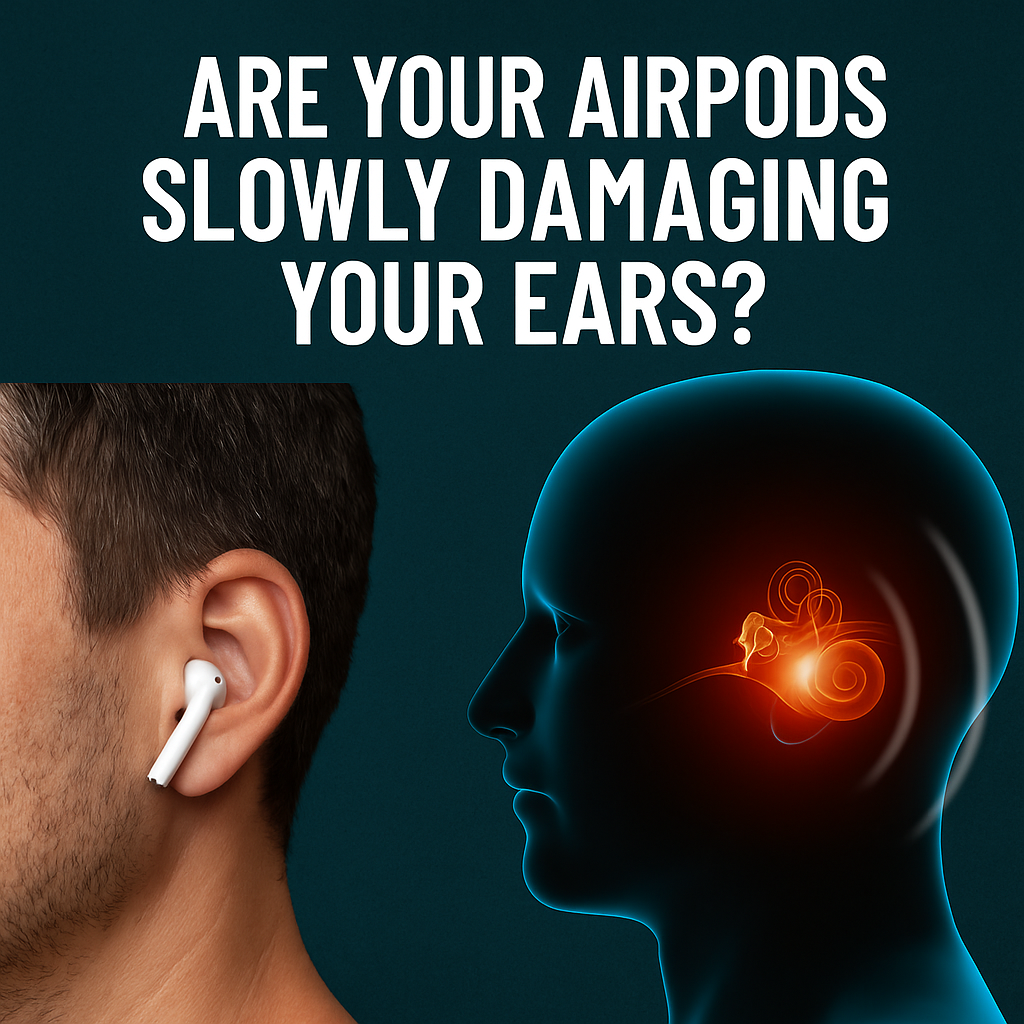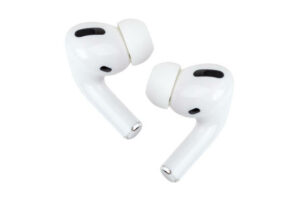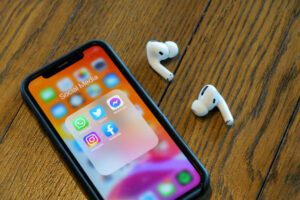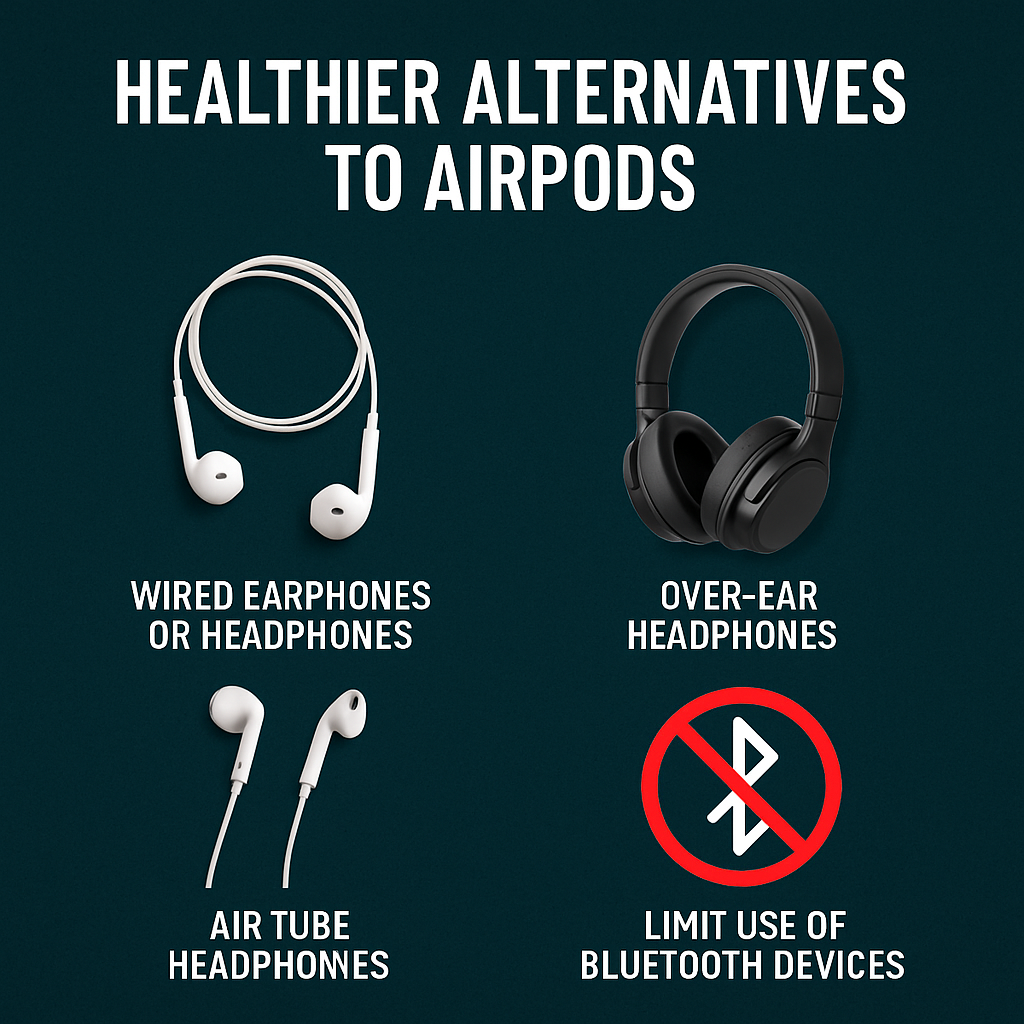Are Your AirPods Slowly Damaging Your Ears? The Hidden Dangers You Should Know
We live in a wireless world, and AirPods have become a fashion statement and a daily companion for millions. Whether you’re taking calls, listening to music, watching a movie, or even sleeping with them on — AirPods seem harmless.
But are they really?
Recent concerns have begun to surface about the harm these devices could be doing to your ears and overall health. And it’s not just about loud music — the real risk may lie in what you can’t hear or see.
How Do AirPods Work?
AirPods work by using Bluetooth, a form of radiofrequency (RF) radiation, to transmit sound from your device to your ears. They are constantly sending and receiving signals when connected — sometimes for hours at a time, directly beside your brain.
While Bluetooth emits low levels of radiation, the concern grows because AirPods sit deep inside your ears, just millimeters from sensitive brain tissues. The long-term exposure has raised questions among health experts and researchers alike.
What Are the Real Dangers?
1. Radiation Exposure (RF and EMF)
Studies have shown that prolonged exposure to radiofrequency electromagnetic fields (EMFs) — the same type emitted by microwaves — could potentially affect your body at the cellular level.
Even though Bluetooth is weaker than a microwave, daily exposure for hours close to the brain makes it a concern worth examining. The World Health Organization (WHO) classifies RF radiation as “possibly carcinogenic to humans.”
While more research is needed, the warning signs are too loud to ignore.
2. Hearing Loss from Loud Volumes
According to the World Health Organization, over 1 billion young people are at risk of hearing loss due to unsafe listening habits. Most people turn up their AirPods to block out surrounding noise — especially in noisy environments like buses or markets.
This can cause noise-induced hearing loss (NIHL) — permanent damage to the tiny hair cells in your inner ear that process sound.
If you’ve ever heard ringing in your ears after using AirPods — that’s a red flag.
3. Ear Infections and Hygiene Risks
AirPods trap sweat and bacteria in your ears, especially when worn for long hours. This creates a warm, moist environment — a breeding ground for infections. Some users have reported itching, inflammation, and even painful ear canal infections.
Why This Matters More Than You Think
Wireless earbuds may seem small and convenient, but their cumulative impact on our health — especially among youths who use them constantly — can be dangerous over time.
Your ears are not just sound receivers — they are directly connected to your brain, balance system, and overall sensory awareness. Constant exposure to high frequencies, radiation, and poor hygiene can lead to:
-
Tinnitus (ringing in the ear)
-
Sleep disruption
-
Headaches and brain fog
-
Early hearing loss
-
Long-term health risks from radiation
So, What Should You Use Instead?
You don’t need to quit listening to music or calls — but switching to safer alternatives can protect your long-term health.
✅ Healthier Alternatives to AirPods:
-
Wired Earphones or Headphones
-
No Bluetooth, no radiation.
-
Ideal for long listening sessions.
-
Make sure to clean them regularly.
-
-
Over-Ear Headphones
-
Don’t sit inside your ear canal.
-
Lower risk of infections and less direct exposure to the brain.
-
Many models include noise-cancellation, so you don’t need to raise volume.
-
-
Air Tube Headphones
-
These reduce EMF exposure by using hollow tubes instead of traditional wires.
-
Great for people sensitive to radiation or electromagnetic fields.
-
-
Limit Use of Bluetooth Devices
-
Use Bluetooth only when necessary.
-
Keep sessions short, and remove AirPods when not in use.
-
Avoid sleeping with them on.
-
Tips for Safe Listening:
-
Keep volume below 60% of your device’s max.
-
Follow the 60/60 rule: 60% volume for no more than 60 minutes at a time.
-
Give your ears a break between sessions.
-
Clean your devices regularly to prevent bacteria buildup.
-
Avoid using them in high-traffic areas where you need to stay alert.
Final Thoughts: Listen Smart, Live Healthy
AirPods and other wireless earbuds are innovative and convenient — no doubt. But convenience should never come at the cost of your health.
As more data and science emerge, it’s becoming clear that caution is the smart choice.
Listen wisely. Protect your ears. Be informed.
And next time you see someone wearing AirPods all day, share this post — you might be saving their hearing (or health).
💬 What Do You Think?
Do you use AirPods daily? Have you experienced discomfort, headaches, or ear pain? Share your story in the comments, and don’t forget to subscribe for more health-conscious tips!










